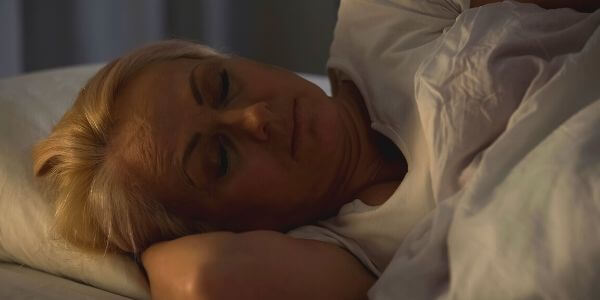Health Hub
HRT and the risk of breast cancer: everything you need to know

Going through the menopause can be a testing time and can cause long lasting, unpleasant side effects. For this reason, many women decide to try hormone replacement therapy (HRT) to help manage their menopausal symptoms.
A research paper recently reported a potentially higher risk of HRT leading to breast cancer than previously thought, but the data used in this report refers to HRT prescribed in a different way to how it is now.
In this article, we aim to help alleviate the fears around taking HRT for the menopause and take a detailed look at the benefits and risks of taking HRT. We speak to Dr Justine Setchell, GP here at King Edward VII’s Hospital who has expertise in menopause management, for her insight and the latest guidance.
What is Hormone Replacement Therapy?
Hormone Replacement Therapy, or HRT, is taken to help relieve the symptoms of the menopause. The menopause can cause unpleasant symptoms such as:
- Night sweats
- Hot flushes
- Low mood or changes in mood
- Reduced libido (sex drive)
- Vaginal dryness

During the menopause, a woman stops producing the hormones oestrogen and progesterone. This also puts some women at risk of developing weaker bones and osteoporosis.
Taking HRT replaces these hormones (some women who have had a hysterectomy take HRT to replace oestrogen only) and helps to reduce the symptoms associated with no longer producing these hormones.
HRT can be given through transdermal oestrogen patches or gels, implants under the skin, as a vaginal pessary or as daily oral tablets. If you’re interested in taking HRT, your doctor will discuss your best options with you.
What do the results of this new study mean?
Studies released in 2002 and 2003 first highlighted the possible link between taking HRT and an increased risk of developing breast cancer. This led to understandable concerns in women taking HRT and to doctors changing the way they prescribe HRT, only prescribing it for women who suffer menopausal symptoms, not just as a matter of course in all menopausal women to help protect against osteoporosis.
More recently, in August 2019, a new study suggests that the risk of HRT leading to breast cancer is higher than previously thought.
This study looked at data from 58 separate studies that involved the participation of around 500,000 women that have gone through their menopause. It found that taking HRT for more than one year increased the risk of breast cancer, and the risk increased the longer HRT was taken. It also found that the risk continued to stay higher for more than ten years after stopping HRT.
The results found that this increased risk was greater with the combined type of HRT that contains both oestrogen and progesterone, than with oestrogen-only HRT.
However, it’s very important to keep in mind that the results of this study are based on data collected from women taking a different regimen of HRT. That is, the women studied were taking HRT prescribed in a different way to how it is today.
As Dr Setchell explains, “how doctors prescribe HRT was changed substantially a decade ago, and the data collected in this study predates that change. Therefore, this new paper doesn’t give an indication of how the current recommended HRT prescribing practices may impact breast cancer risk.”
“Much of the information from this new study is already known. Almost all of the data used in this study relates to HRT formulations and doses already known to have adverse effects on breast cancer risk and are therefore no longer recommended or prescribed,” she says.
The risks and benefits of using HRT to help alleviate menopause symptoms
Taking HRT can be extremely beneficial for many women going through the menopause. It helps to manage uncomfortable symptoms, so can significantly improve the quality of life of women who suffer the symptoms of the menopause.
The potential breast cancer risk is just one factor when analysing the benefits and risks of taking HRT. Dr Setchell explained, “Each woman has a different range of menopause symptoms and experiences a different severity of these symptoms. These should be taken into account when weighing up the risks and benefits of prescribing HRT for each woman.”
“Since HRT provides beneficial effects to bone health and osteoporosis risk as well as helping to manage unpleasant symptoms, each individual woman should be prescribed HRT on a case-by-case basis after a discussion with her GP, also taking into account other breast cancer risk factors.”
HRT then should then be prescribed at the lowest dose and for the shortest amount of time required to manage menopausal symptoms.

Obesity and breast cancer risk
This new study found that rather than HRT having a larger impact on the risk of breast cancer, obesity is an important risk factor for breast cancer.
As Dr Setchell explains, “a hormone called estrone is the main type of oestrogen produced by women who have gone through the menopause. Estrone is found in higher levels in overweight or obese women”.
She goes on to say that, “this has led to the conclusion that estrone may be a key factor in linking obesity with breast cancer.”
“This important message has been widely missed in press reports surrounding this new study, in favour of misleading information relating to HRT and breast cancer.”
“If you’re concerned about your weight and breast cancer, speak to your GP who can provide support and information on losing weight and maintaining a healthy weight,” Dr Setchell advises.
What should I do if I want to stop taking HRT?
The MHRA, the Medicines and Healthcare products Regulatory Agency, that ensures the safety of medications and medical devices, advises that women who are taking HRT and are concerned, should talk to their GP.
You can stop taking HRT if you wish, but it’s best to do so gradually, under the care of your GP. You should also make sure you have regular breast screening as and when you’re offered it by the NHS.
What are the alternatives to HRT?
Some women decide that they’d prefer not to take HRT to help them through their menopause, while others are unable to due to other medical concerns. If you’d like help managing your symptoms without HRT, you still have options.
Lifestyle measures such as taking plenty of exercise, eating a healthy balanced diet and managing stress where you can will help to manage your weight, keep your bones healthy and improve your mood. All of which can help to reduce the severity of your symptoms.

If you suffer with hot flushes and night sweats, sleeping in a cool room with pyjamas and bed linen made from natural, breathable fabrics may help. As will avoiding foods and drinks that may make you hot, such as spicy foods, alcohol and caffeine. Vaginal lubricants, available from your pharmacy, can help if you suffer with vaginal dryness.
There are natural and complementary therapies that may also help you manage the symptoms of your menopause. These include evening primrose oil and black cohosh.
These remedies are available from pharmacies and health food shops, but the evidence to support their effectiveness isn’t as yet conclusive either way. Speak to your GP if you have any concerns regarding alternative remedies to help support the menopause.
Alternatively, there are medications available from your GP that are prescription medicines, but differ slightly from HRT. One is tibolone that is taken as a daily oral tablet and helps to reduce hot flushes and other menopausal symptoms such as a lowered libido and a low mood. However, tibolone has a similar associated risk of developing breast cancer to HRT.
Another medication, called clonidine doesn’t alter levels of oestrogen or progesterone, so isn’t associated with the same risks. Clonidine works specifically to reduce hot flushes but there is some research that says it doesn’t have a very marked impact on symptoms.
More information
- If you’re concerned about any aspect of the menopause, HRT, obesity or breast cancer, speaking to your GP is a good first port of call. If you don’t have a GP, you can make an appointment with one of our same day private GPs.
- The King Edward VII’s Hospital has dedicated gynaecology and breast health departments that can help to support you through any tests or treatments.
- For more information on this topic, Dr Setchell has also recently contributed to a podcast on menopause and the important role GPs play in helping women manage symptoms. You can listen to it here.
Article Sections
Latest Hospital News
Should you wish to speak to our press team, please visit Press Enquiries




